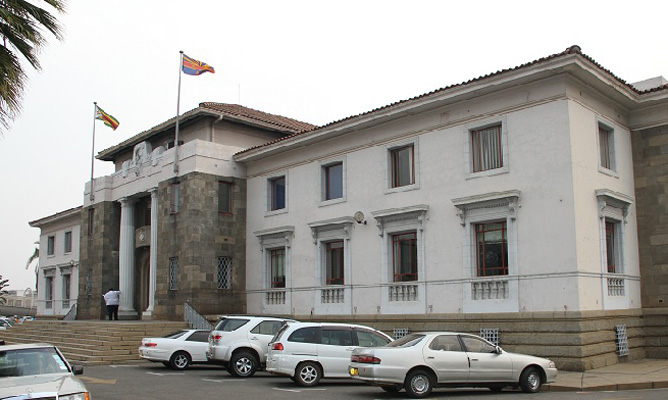
Harare City Council and a local water purification dealer are embroiled in a dispute over a $500 000 mobile water treatment plant meant to provide water to Mabvuku, Tafara and nearby suburbs.
BY XOLISANI NCUBE
Cabinet in October last year approved a $500 000 deal with Connect Water (Pvt) Ltd to establish an emergency mobile water treatment plant at a time the city was battling a cholera outbreak, which left at least 55 people dead countrywide.
But six months later, the money released by Treasury, through the Civil Protection Unit (CPU), has not yet reached the contractor, as council and CPU want a performance bond to guarantee delivery.
Harare town clerk Hosiah Chisango confirmed that council, working with CPU, refused to release the money until Connect Water (Pvt) Limited provided a performance bond to guarantee delivery of the equipment.
“We said the contractor should either deliver the equipment and we pay upon delivery or we get a performance-based bond to ensure that as the city, we don’t expose our money. That is the reason why we still don’t have machinery for a mobile treatment plant,” he said.
Community Water Alliance, a civic group with interests in water issues and made up of various non-governmental organisation, had questioned why council was not establishing the mobile treatment plant for areas such as Gletywin and parts of Borrowdale after government had released the funding as a grant.
Mabvuku is one of the suburbs that council has not been servicing with tap water for more than two decades, and the mobile treatment plant was touted to be the solution to the perennial water woes.
- Chamisa under fire over US$120K donation
- Mavhunga puts DeMbare into Chibuku quarterfinals
- Pension funds bet on Cabora Bassa oilfields
- Councils defy govt fire tender directive
Keep Reading
“The money is still there. All we want is a guarantee that once we release, delivery will not fail. We have said to the contractor; it’s either they provide a performance bond or they deliver and we pay afterwards. The money has been approved by the minister, and we are only waiting for the contractor to do their part,” Chisango said.
But mayor Herbert Gomba said the delay in the deal was affecting service delivery and vowed to engage Local Government minister July Moyo to ensure that bottlenecks and bureaucratic delays were dealt with.
“Our people want tap water and it is unfortunate that these unnecessary delays are exposing our people to waterborne diseases. We had hoped that the mobile treatment plant would solve water problems for the Mabvuku residents, but it seems as if it is turning into another pipe dream. This has to stop,” Gomba said.
Connect Water director Smolly Moyo lashed at government officials for delaying the project, saying the issue of performance guarantee was never raised at the start of the project, only to surface when some bigwigs at the Ministry of Local Government showed “an attitude towards the deal”.
“The issue of a performance bond that they are now asking was only raised after Treasury had released the money to the Civil Protection Unit. My bank had offered to guarantee the deal at 10%, but someone is trying to deprive the people of Mabvuku and Tafara an opportunity to get treated water by delaying to action the deal,” Smolly said.
“I have since engaged again the bank to state the position that they would guarantee the deal, but one funny thing is that council was now saying the performance bond issue should not be directed to them, but to the Civil Protection Unit. It seems as if someone is playing with people’s lives.”
In the 2019 budget, council had set aside $3 million towards the establishment of a mobile treatment plant, and with the initial injection from government, water woes were bound to ease.
At the moment, council is producing less than 300 megalitres per day against a demand of 1 200 megalitres, and 50% of that was being lost through leakages.











